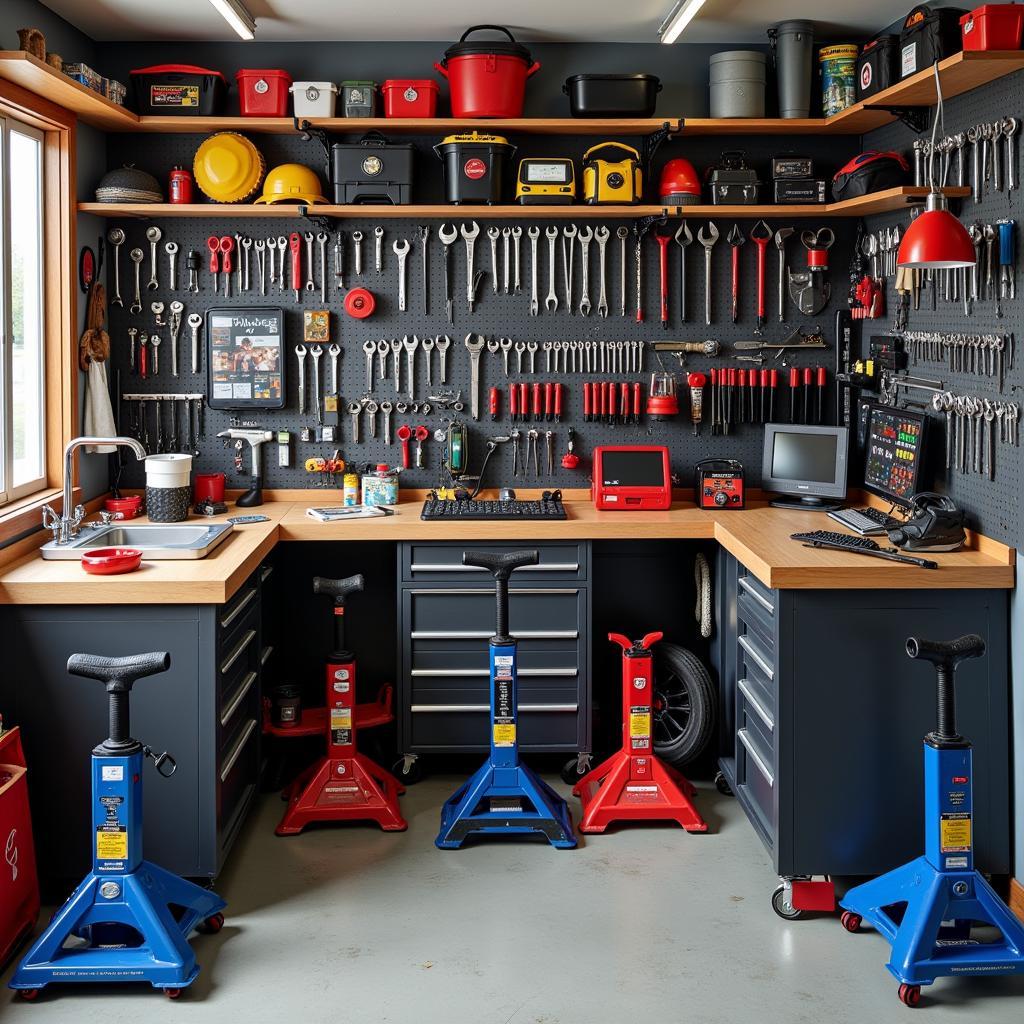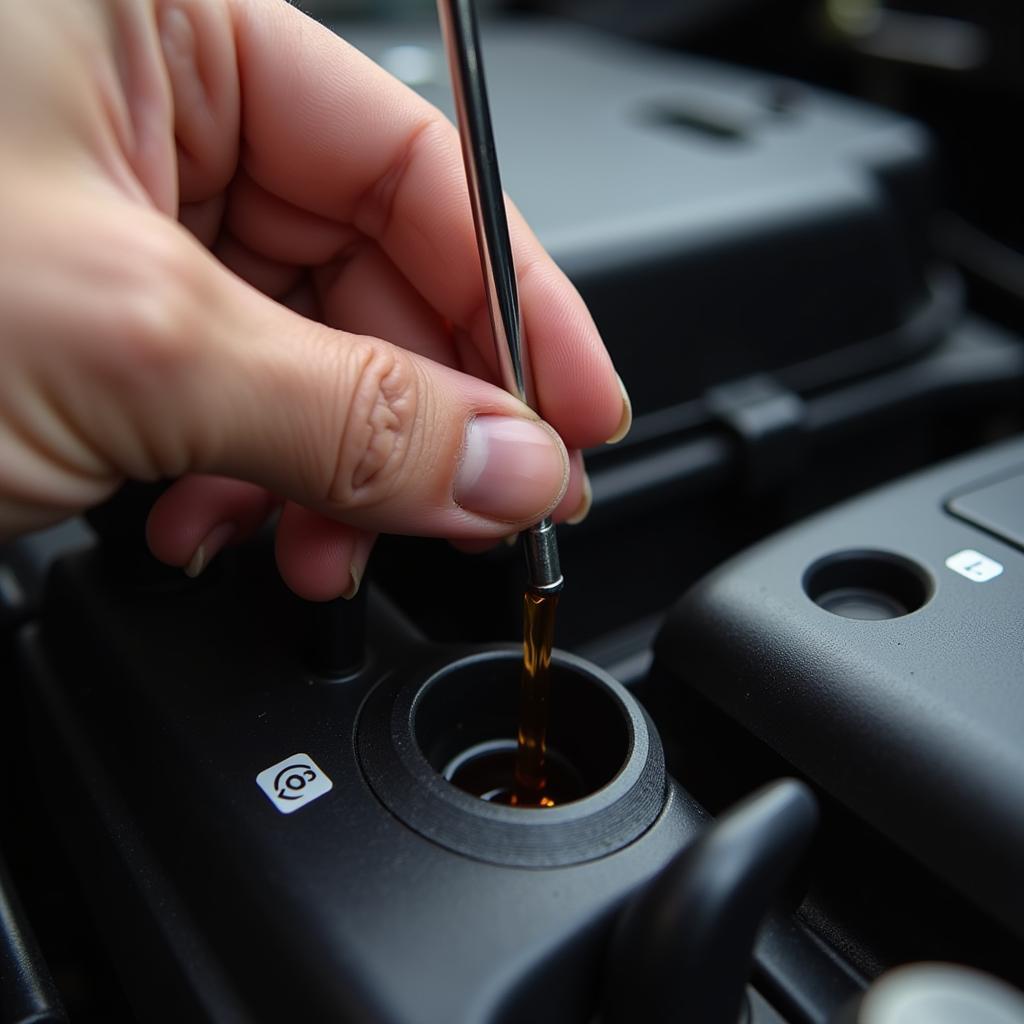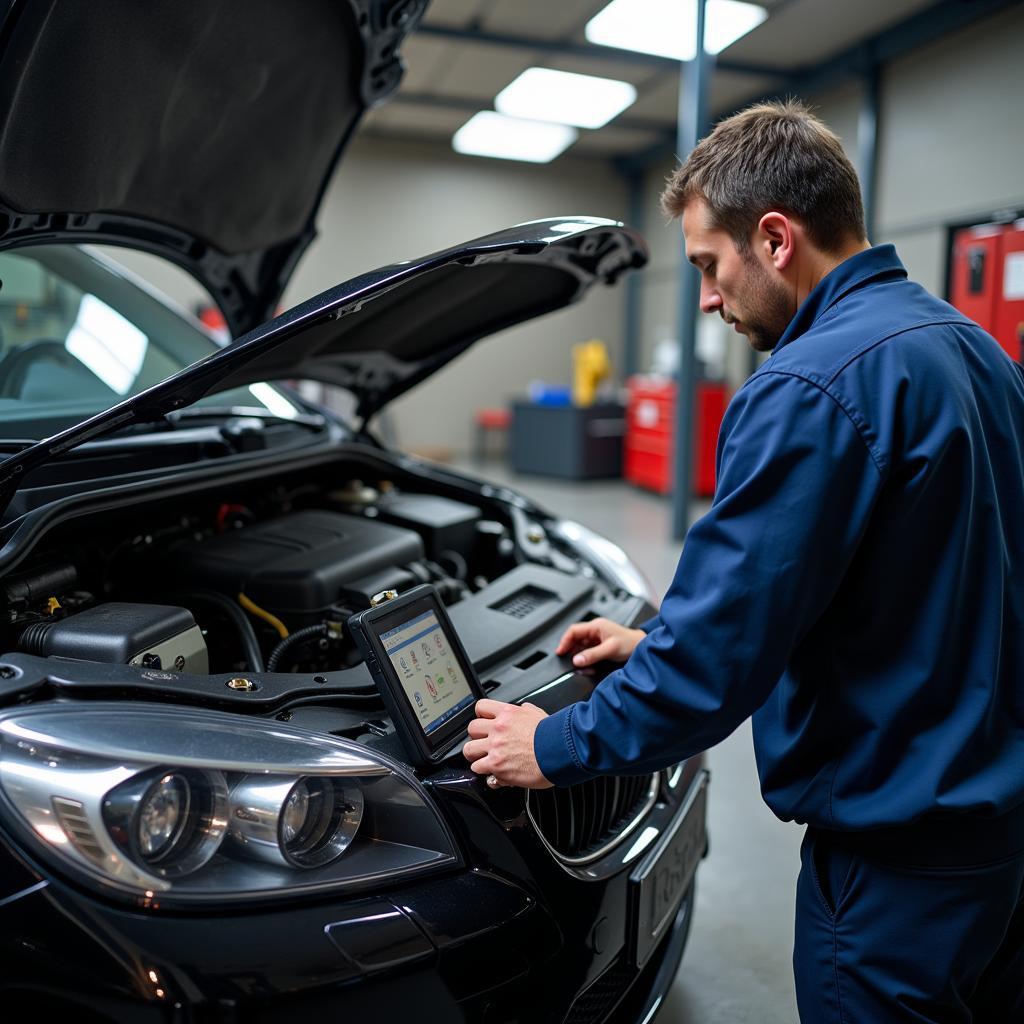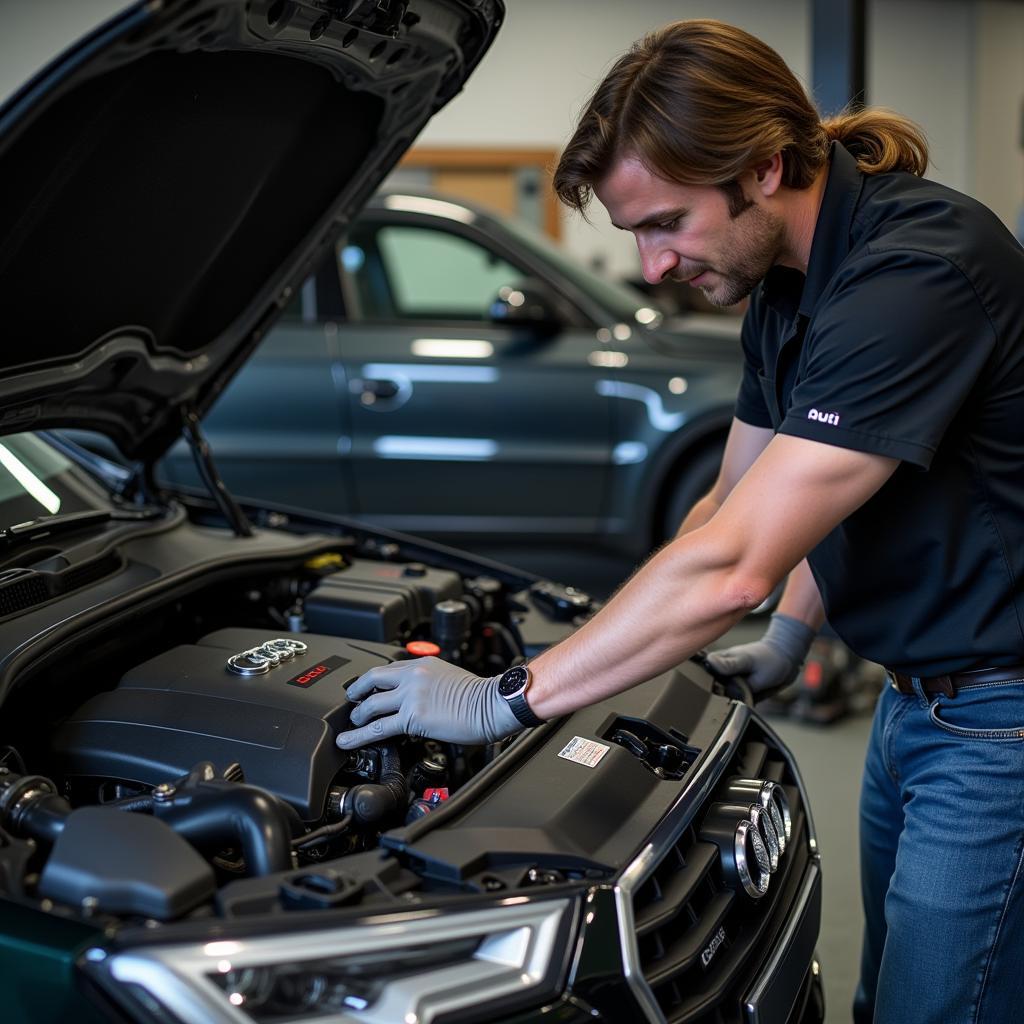Should You Service Your Own Car?
Should You Service Your Own Car? It’s a question many car owners ponder, balancing the potential cost savings against the complexities of modern vehicles. This article delves into the pros and cons of DIY car servicing, helping you decide whether to grab a wrench or entrust your vehicle to a professional.
If you’re keen on understanding the intricacies of a full car service, check out what happens at a full car service.
Modern cars are packed with sophisticated technology, from advanced engine management systems to intricate safety features. While older vehicles were relatively straightforward to work on, newer models demand specialized tools and knowledge. Attempting complex repairs without the proper training can lead to costly mistakes, potentially damaging your car and voiding your warranty.
Weighing the Pros and Cons of DIY Car Servicing
There are definite advantages to servicing your own car. The most obvious is the potential cost savings. Garage labor rates can be significant, and DIY servicing eliminates this expense. You also have complete control over the parts used, ensuring quality and avoiding inferior substitutes. Finally, many find satisfaction in working on their own vehicles, gaining a deeper understanding of how they operate.
However, DIY car servicing also presents challenges. Beyond the need for specialized tools and knowledge, it requires significant time and effort. Incorrectly performed repairs can lead to further damage, negating any initial cost savings. Furthermore, working on modern vehicles can be messy and demanding, requiring a suitable workspace and disposal methods for used fluids. For some insight into dealer servicing for warranty validity, see do dealer have to service car for waranty valid.
 DIY Car Service Tools and Equipment
DIY Car Service Tools and Equipment
What Services Can You Realistically Perform Yourself?
Certain routine maintenance tasks are readily achievable for the average car owner. These include checking and topping off fluids like oil, coolant, and brake fluid, replacing air filters, and changing wiper blades. These tasks are relatively straightforward and require minimal tools. However, more complex procedures like brake repairs, suspension work, or anything involving electronic systems are best left to the professionals.
Simple Maintenance Tasks You Can Tackle
- Checking and topping off fluids: Regularly check your oil, coolant, and brake fluid levels. Top them off as needed, following your owner’s manual for the correct fluids and procedures.
- Replacing air filters: Air filters are relatively easy to access and replace, following simple instructions in your owner’s manual.
- Changing wiper blades: Wiper blades are inexpensive and simple to replace, ensuring clear visibility in inclement weather.
 Checking Car Fluid Levels
Checking Car Fluid Levels
When to Call in the Professionals
While some tasks are DIY-friendly, others require professional expertise. These include:
- Brake repairs: Brakes are critical for safety and require specialized knowledge and tools to service correctly.
- Suspension work: Suspension systems are complex and require specialized equipment for alignment and adjustments.
- Electronic system diagnostics and repairs: Modern cars are heavily reliant on electronic systems. Diagnosing and repairing these systems requires specialized diagnostic tools and expertise.
Wondering about the cost of servicing a Mitsubishi? Check out how much is a car service mitsubishi for more information.
The Importance of Regular Car Servicing
Regardless of who performs the service, regular maintenance is essential for the longevity and reliability of your vehicle. Regular servicing helps identify potential problems early, preventing costly repairs down the road. It also ensures optimal performance, fuel efficiency, and safety.
“Regular maintenance is like preventative medicine for your car,” says John Smith, ASE Certified Master Technician. “Addressing small issues early can prevent them from becoming major headaches later on.”
 Professional Mechanic Working on a Car
Professional Mechanic Working on a Car
Conclusion
Should you service your own car? The answer depends on your skills, available time, and the complexity of the task. While simple maintenance is often achievable for DIYers, complex repairs are best left to qualified professionals. Regular servicing, whether DIY or professional, is crucial for maintaining your vehicle’s health and ensuring its safe and reliable operation. If you’re considering servicing an older car at a dealer, explore would you service an older car at the dealer for valuable insights. Also, learning about free preventative care services can help you save money. See what are free preventative care services for details.
FAQs
- What is the most important car maintenance task? Regularly checking and changing your oil is crucial.
- How often should I service my car? Consult your owner’s manual for the recommended service intervals.
- Can I void my warranty by servicing my car myself? Potentially, if improper procedures are followed or non-approved parts are used.
- What tools do I need for basic car maintenance? A basic toolkit should include wrenches, sockets, screwdrivers, and pliers.
- Where can I find reliable car repair information? Consult your owner’s manual or reputable online resources.
- What are the signs that my car needs a service? Unusual noises, leaks, warning lights, or changes in performance.
- How can I save money on car servicing? Compare prices from different garages and consider DIY for simple tasks.
Need help with your car? Contact us via WhatsApp: +1(641)206-8880 or Email: [email protected]. Our customer service team is available 24/7.

